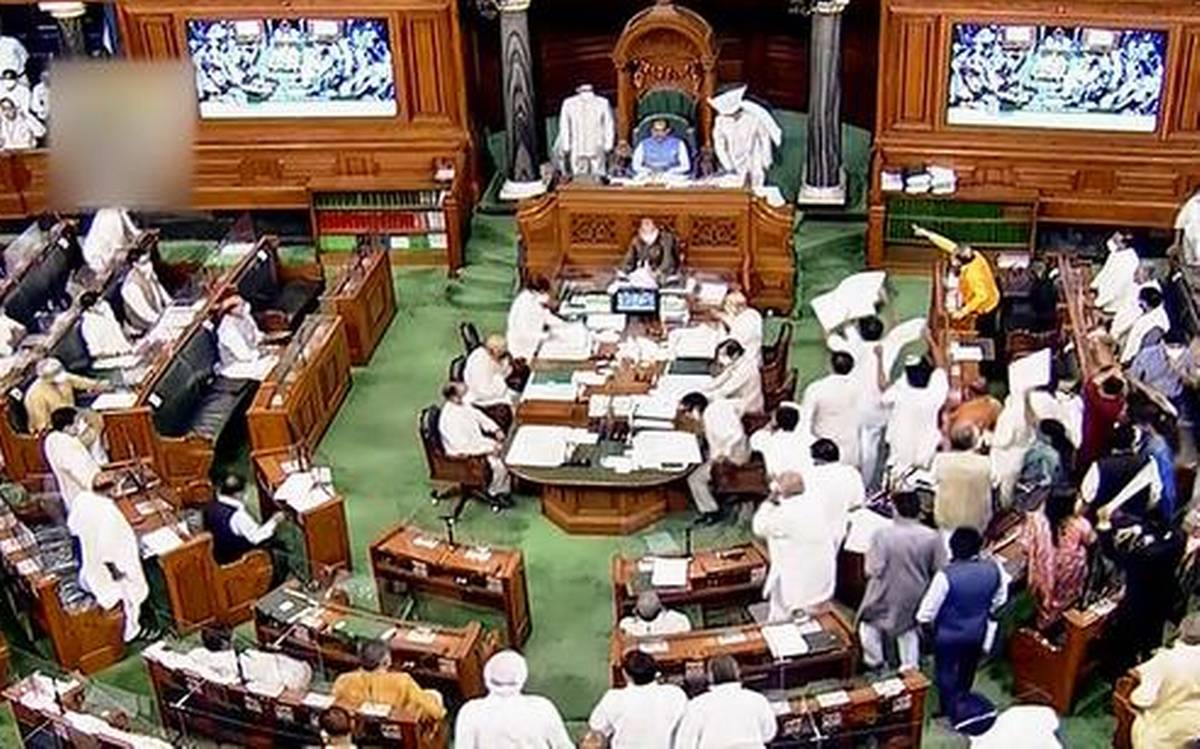Essential Defence Services Bill Introduced In Parliament

The Government has introduced a new Bill to replace the Ordinance that seeks to prevent the workers of establishments that are engaged in “essential defence services” from going on strikes, or the lockouts of such units. Earlier the Ministry of Law and Justice had brought out the Essential Defence Services Ordinance, 2021. This new Bill will now replace the ordinance, and will come into effect retrospectively from 30 June, if passed.
Introduced earlier this week, the Bill will empower the government to prohibit agitation or strikes among such workers. It will also empower the government to ban lockouts in units engaged in these services.
Essential defence services refer to establishments engaged in production of goods or equipment required for any purpose connected with defence.
According to the government, these services are those the “cessation of work of which would prejudicially affect the production of defence equipment or goods; or the operation or maintenance of any industrial establishment or unit engaged in production of goods or equipment required for any purpose connected with defence; or repair or maintenance of products connected with defence”.
The ordinance followed by the Bill became necessary because of a strike proposed by the employees’ federations of ordnance factories from 26 July — against the government’s decision last month to corporatize them.
The Essential Defence Services Bill, 2021 says it is meant to provide for the maintenance of essential defence services “so as to secure the security of the nation and the life and property of public at large and for matters connected therewith or incidental thereto”.
It will empower the government to prohibit strikes, agitations of workers employed in establishments the government decides to mark as essential defence services, and prevent lockouts of such establishments.
If a person employed in an establishment engaged in such services starts or takes part in a strike considered illegal under the proposed law, they will be liable to disciplinary action (including dismissal) and imprisonment for up to one year or with fine which may extend to Rs 10,000 or both.
The penalties are higher for those instigating or giving financial aids to such strikes.
The Bill also prohibits layoffs by employers for workers of industrial establishments engaged in these services.
In its statement of objects and reasons, the Bill specifically cites the Indian ordnance factories, the oldest and largest industrial setup under the Ministry of Defence, whose employees’ federations had called for an indefinite strike from 26 July against the government’s decision to corporatize them last month.
This proposed indefinite strike perhaps triggered the ordinance and the Bill — on such a short notice — even as defence sources insisted that the move had been on cards for a long time. The strike was proposed after the government decided to corporatize the 41 ordnance factories across India into seven 100 per cent government-owned corporate entities, registered under the Companies Act 2013. The decision was taken to improve autonomy, accountability and efficiency in ordnance supplies, and streamline functioning.
The federations then declared an indefinite strike from 26 July despite the government’s assurances to take care of the employees’ conditions of service. While bringing in the Bill, the government said it is essential that an uninterrupted supply of ordnance items to the armed forces be maintained for the defence preparedness of the country and the ordnance factories continue to function without any disruptions, “especially in view of the prevailing situation on the northern front of the country”.
“… it was felt necessary that the Government should have power to meet the emergency created by such attempts and ensure the maintenance of essential defence services in all establishments connected with defence, in public interest or interest of the sovereignty and integrity of India or security of any State or decency or morality,” it said.
The Bill will affect the nearly 80,000 workers employed across Indian ordnance factories — considered among the critical organisations in defence — and other establishments the government might tag as engaged in essential defence services.
The Bill does not explicitly state whether private companies in critical defence services will be covered under it. In the past, attempts to change the functioning of the ordnance factories have been met with stiff resistance from the employees’ federations. Three federations had called for a strike over the proposed move last year too, but subsequently called it off after a “conciliation meeting” with the Ministry of Labour and Employment.
This is despite three committees on defence recommending corporatisation between 2000 and 2015 and it being listed as one of the 167 transformative ideas to be implemented within the first 100 days of the second term of the Modi government.
A senior defence official pointed out that while those engaged in essential defence services may not be allowed to go for strikes, and may face punitive actions after the Act comes into effect, the draft law also takes away the employers’ rights to lay off workers.



